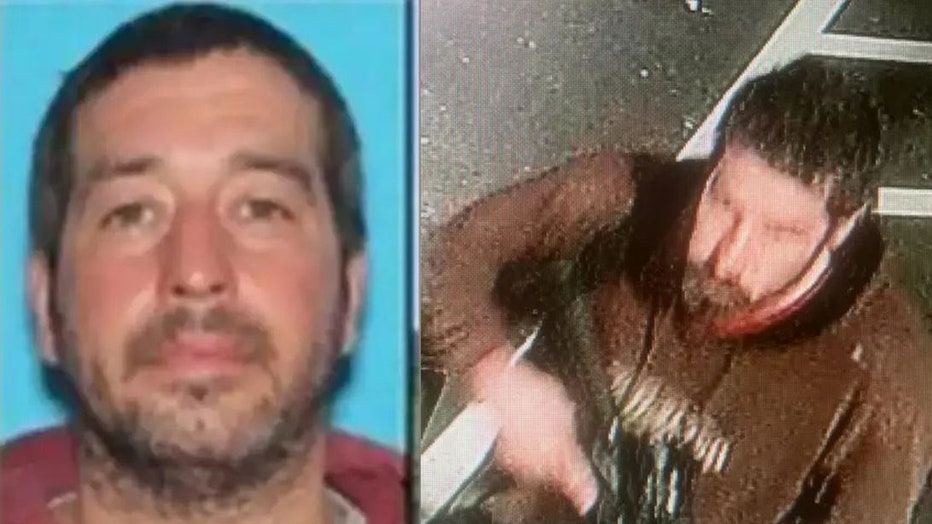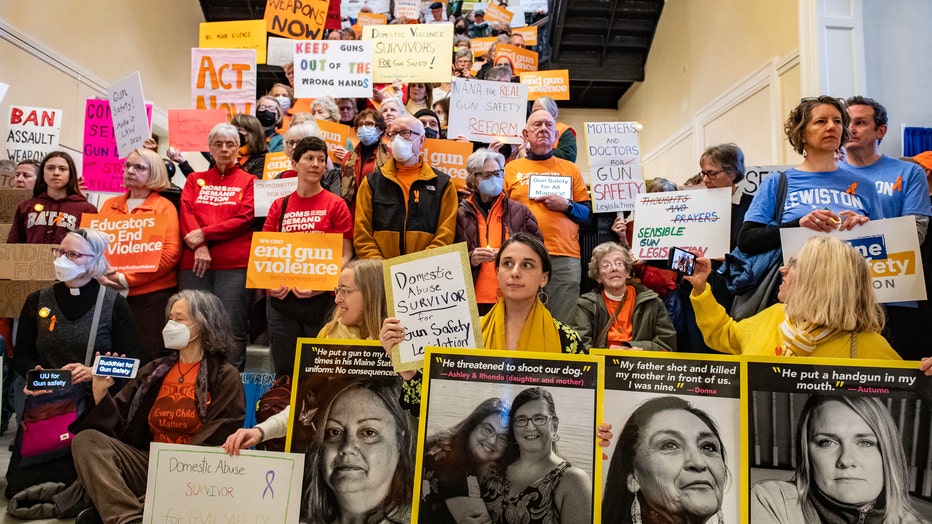Maine mass shooter's guns should have been seized weeks before, report finds

More details in Lewiston, Maine mass shooting
An Army reservist who served with a man who fatally shot 18 people in Maine last year and participated in the search for him after the killings on Thursday described the response to the tragedy as chaotic. LiveNOW from FOX host Jeane Franseen spoke with veteran police officer David J. Thomas on the investigation.
LEWISTON, Maine - Robert Card, the man who killed 18 people in shootings at a bowling alley and bar in Lewiston, Maine, should have had his guns seized weeks before the mass murder, a new independent report concludes.
An independent commission released its findings Friday and said Card also should have been in protective custody because he was suffering a mental health crisis, according to The Associated Press.
Sgt. Aaron Skolfield with the Sagadahoc County Sheriff’s Office is criticized in the report. He’s the deputy who investigated Card’s mental health crisis after he had previously assaulted a friend and threatened to shoot up the Saco Armory.

Robert Card, person of interest in Maine mass shootings (Androscoggin County Sheriffs Office) (Androscoggin County Sheriffs Office)
A brain tissue analysis released in early March showed Card had significant evidence of traumatic brain injuries, including degeneration in the nerve fibers that allow for communication between different areas of the brain, inflammation and small blood vessel injury, according to Fox News. Card had been an instructor at an Army hand grenade training range, where it is believed he was exposed to thousands of low-level blasts.
RELATED: Maine mass shooting suspect Robert Card had traumatic brain injuries, new scan shows
The commission found Skolfield had probable cause to start a "yellow flag" process, which allows a judge to temporarily remove somebody’s guns during a psychiatric health crisis. Skolfield never took action to take the guns.
Family members of the shooting victims said the report’s findings aren’t news.

Gun safety supporters mix with pro-gun supporters as they attend a gun safety rally at the State House in Augusta, Maine, on January 3, 2024. On October 25, 2023 Robert Card shot and killed 18 people, injuring 13 others, during a mass shooting in Lew
"The commission said it straight out — that they could have done it, should have done it," said Leroy Walker, an Auburn City Council member whose son Joseph was killed in the shootings. "What something like this really does is it brings up everything … It just breaks the heart all over again."
Card, who was found dead by suicide after a two-day search, was well-known to law enforcement, and his family and fellow service members had raised flags about his behavior, deteriorating mental health and potential for violence before the shootings.
RELATED: Maine shooting victims: 'Hero' bar manager, volunteer youth bowling coach among deaths
In May, relatives warned police that Card had grown paranoid, and they expressed concern about his access to guns. In July, Card was hospitalized in a psychiatric unit for two weeks after shoving a fellow reservist and locking himself in a motel room. In August, the Army barred him from handling weapons while on duty and declared him nondeployable. And in September, a fellow reservist texted an Army supervisor about his growing concerns about Card, saying, "I believe he’s going to snap and do a mass shooting."
The shooting happened Oct. 25.
The commission’s chair cautioned that their work isn’t done – and this was an interim report to fill officials in on what they’ve learned so far.
"Nothing we do can ever change what happened on that terrible day, but knowing the facts can help provide the answers that the victims, their families, and the people of Maine need and deserve," Commission Chair Daniel Wathen said in a statement.
Elizabeth Seal, whose husband Joshua was killed in the shootings, said she felt the focus of the report was "narrow."
"I’m in agreement with the committee’s findings as far as they go, and I do think it’s a legitimate point that the Sagadahoc Sheriff’s Office could have done more to intervene," Gideon said. "I was a little disappointed that the committee didn’t take a wider view of the issues that start as far back as May."
The Associated Press contributed to this report.

